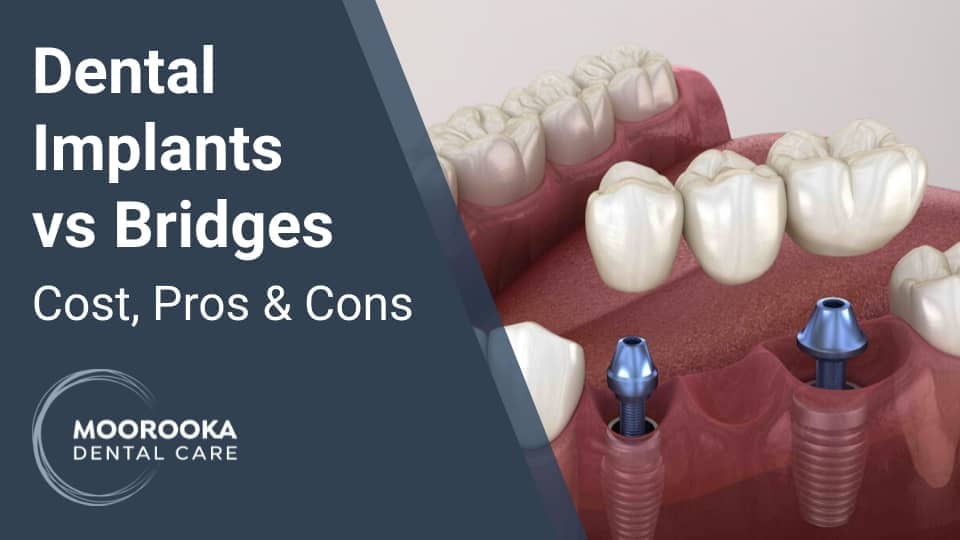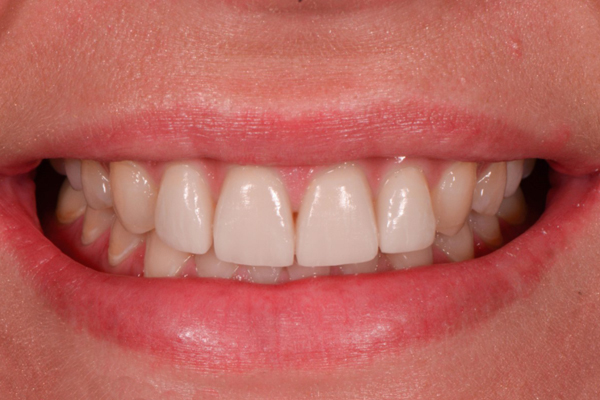Key Takeaways:
- Dental implants and bridges are both effective options for replacing missing teeth, but they each have their own unique pros and cons.
- The decision of whether to choose dental implants or bridges will depend on your individual needs, budget, and dental health.
- Dental insurance may cover some or all of the costs for both options, and it’s important to check with your insurance provider to know your coverage.

Table of Contents
- 1 Dental Implants vs Bridges – What’s The Difference?
- 2 Pros and Cons of Dental Implant
- 3 Pros and Cons of a Dental Bridge
- 4 Dental Implant vs. Bridge: Cost
- 5 Dental Implant vs. Bridge: Which is Right for You?
- 6 FAQs About Dental Implants Vs. Bridges
- 6.1 1. Which option is better for replacing missing teeth: dental implants or bridges?
- 6.2 2. Does dental insurance cover the cost of dental implants or bridges?
- 6.3 3. How long do dental implants and bridges last?
- 6.4 4. Is there any recovery period after getting dental implants or bridges?
- 6.5 5. Do dental implants and bridges require the same level of maintenance?
- 6.6 6. Are there any conditions that may prevent someone from getting dental implants or bridges?
- 6.7 7. What is the difference between a single tooth implant and a bridge?
- 6.8 8. Can I replace a full arch of teeth with dental implants or bridges?
- 7 Conclusion
Dental Implants vs Bridges – What’s The Difference?
Dental implants use a titanium post, surgically implanted into the jawbone, to replace a single tooth, which is then topped with a prosthetic tooth. In contrast, a bridge fills the gap of one or more missing teeth by anchoring a false tooth to the adjacent healthy teeth. Both are effective solutions for missing teeth.
Pros and Cons of Dental Implant
A dental implant is a permanent solution for missing teeth. It involves a titanium screw that is surgically inserted into the jawbone, acting as an artificial root. Once healed, a custom-made crown is attached to the implant, providing a natural-looking and functional tooth replacement.
Pros
- Longevity: With proper care, dental implants can last a lifetime.
- Natural Look and Feel: Implants look, feel, and function like natural teeth.
- Bone Health: Implants stimulate the jawbone, preventing bone loss that often occurs after tooth loss.
- No Impact on Adjacent Teeth: Unlike bridges, implants don’t require alteration of neighbouring teeth.
Cons
- Surgery: Implants require a surgical procedure, which carries risks and requires healing time.
- Cost: Implants are typically more expensive than bridges.
- Not Always Covered by Insurance: Many insurance companies consider implants a cosmetic procedure and may not cover the cost.
Pros and Cons of a Dental Bridge
A dental bridge, as the name suggests, bridges the gap created by one or more missing teeth. It consists of two or more crowns for the teeth on either side of the gap and a false tooth (or teeth) in between. These supporting teeth are known as abutment teeth, and the false teeth are called pontics.
Pros
- Quick Procedure: Bridges can be completed in two dental visits.
- Non-Surgical: No surgery is required to place a bridge.
- Cost: Bridges are generally less expensive than implants and are often covered by insurance.
Cons
- Lifespan: Bridges typically need to be replaced every 7-10 years.
- Impact on Adjacent Teeth: The teeth on either side of the missing tooth must be filed down to support the bridge.
- Potential for Decay: Without diligent oral hygiene, the supporting teeth are at risk for decay.
Dental Implant vs. Bridge: Cost
On average, the cost of a dental implant ranges from $2,000 to $5,000 per implant. On the other hand, a dental bridge typically costs between $1,500 and $4,000. While dental implants may have a higher upfront cost, they can provide a more permanent solution and may be more cost-effective in the long run. Conversely, dental bridges, while less expensive initially, may need to be replaced over time, potentially increasing their overall cost. Always consult with your dental professional to understand the full costs associated with each option.
 Dental Implant vs. Bridge: Which is Right for You?
Dental Implant vs. Bridge: Which is Right for You?
The choice between a dental implant and a bridge depends on your specific needs, oral health, and budget. If you’re looking for a long-term solution and want to preserve your jawbone and surrounding teeth, an implant may be the best choice. However, if you need a quicker or less invasive solution, or if cost is a significant factor, a bridge may be more suitable.
FAQs About Dental Implants Vs. Bridges
1. Which option is better for replacing missing teeth: dental implants or bridges?
It depends on your individual needs, budget, and dental health.
2. Does dental insurance cover the cost of dental implants or bridges?
It depends on your insurance plan. It’s highly recommended to check with your insurance provider to know your coverage.
3. How long do dental implants and bridges last?
Dental implants can last a lifetime with proper care and maintenance. Dental bridges typically last between 5 and 15 years.
4. Is there any recovery period after getting dental implants or bridges?
There is a recovery period after getting dental implants, which may include some discomfort and swelling. However, there is no recovery period after getting bridges.
5. Do dental implants and bridges require the same level of maintenance?
Both dental implants and bridges require regular cleaning and maintenance to keep them in good condition.
However, while bridges can be affected by decay and gum disease, dental implants are not affected by decay, but they may need to be checked for any signs of implant failure, such as loosening or shifting.
6. Are there any conditions that may prevent someone from getting dental implants or bridges?
Certain medical conditions, such as diabetes, osteoporosis, and heavy smoking, may make it more difficult to get dental implants.
Also, having an insufficient bone in the jaw may make a bone graft necessary before an implant can be placed.
Bridges may not be an option for people who have advanced periodontal disease or insufficient healthy teeth to support the bridge.
7. What is the difference between a single tooth implant and a bridge?
A single tooth implant replaces the entire tooth, including the root, while a bridge only replaces the visible portion of the tooth. Dental implants preserve the jawbone, preventing bone loss, while a bridge does not.
8. Can I replace a full arch of teeth with dental implants or bridges?
Yes. Both dental implants and bridges can replace a full arch of teeth. Dental implant-supported dentures are most popular for replacing a full arch of teeth.
However, bridges are not so good for replacing a full arch of teeth, as they require the removal of healthy tooth structure and they can only be supported by a limited number of abutment teeth.
Conclusion
Dental implants offer a natural-looking, long-lasting solution, while bridges are an affordable and non-invasive option.
Your dentist will weigh the pros and cons and decide which option is best for your situation. To get your missing tooth replaced, visit Moorooka Dental Clinic. Our team of experienced dentists are always available to give you the best dental care.
